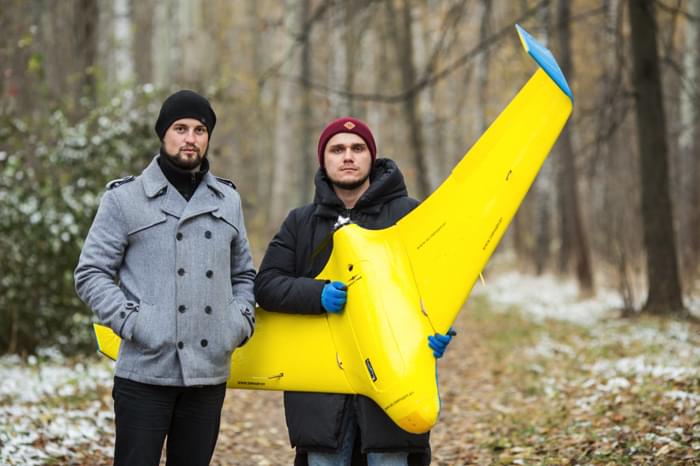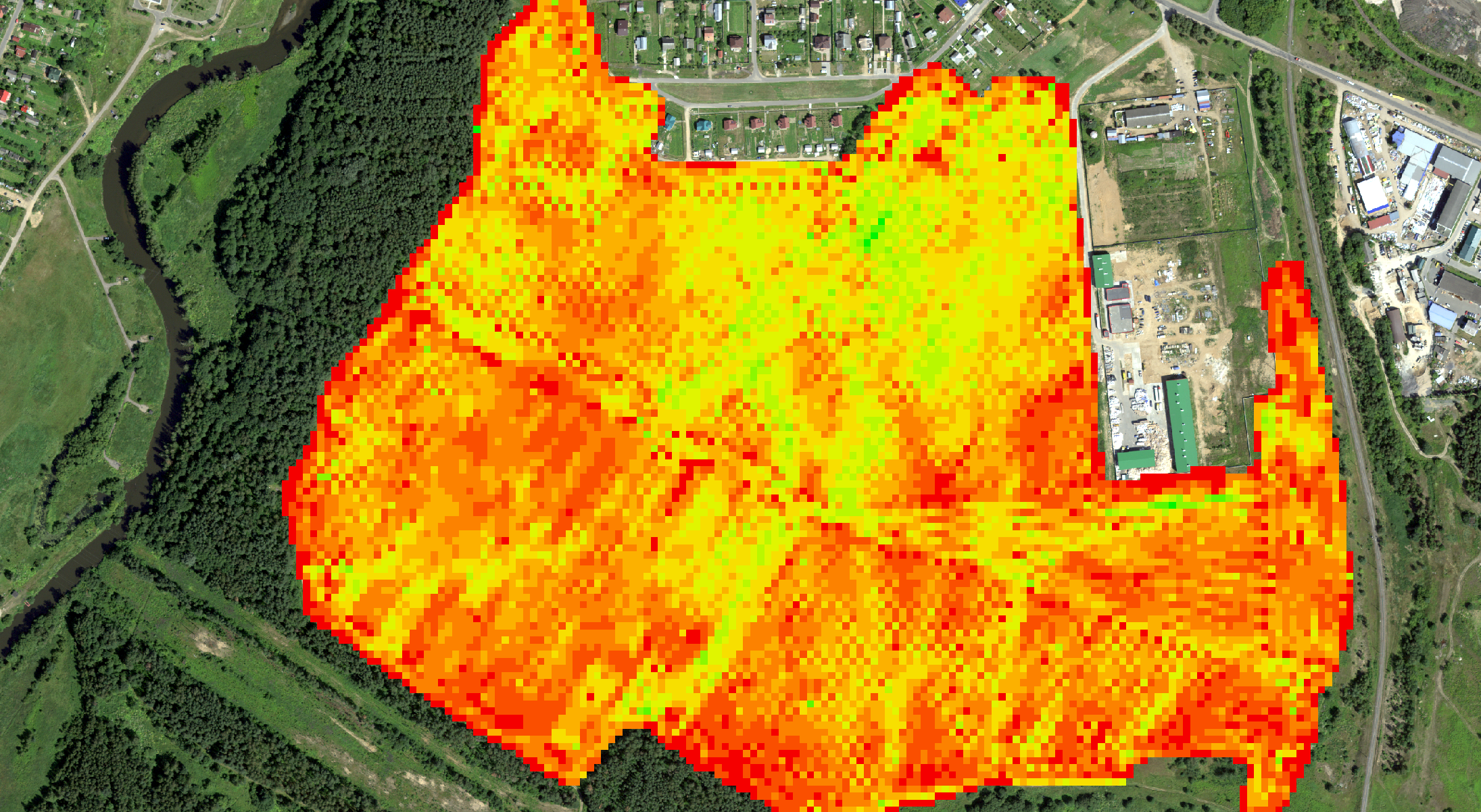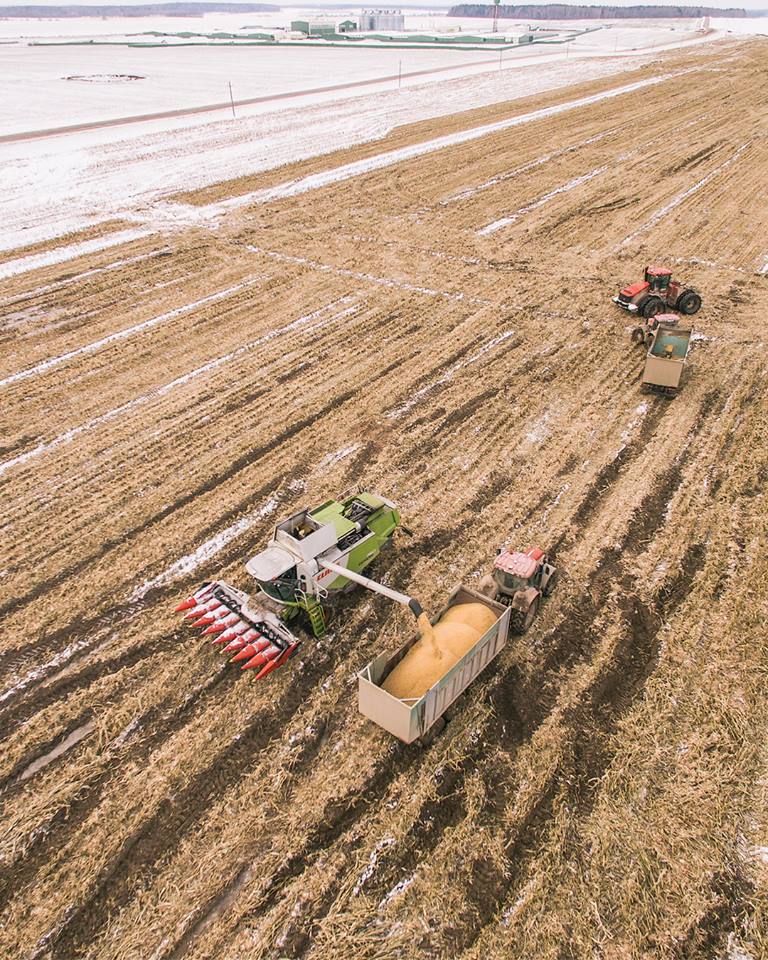LOGIN Startup Fair: OneSoil – Optimizing Current and Predicting Future Agriculture Yields
2017
Apr 05
Apr 05

Meet OneSoil, a Minsk-based company that develops AI-based smart platform for agriculture that helped to save farmers 25% of seeds and fertilizers during their first test season.
OneSoil was among the three winners at Startup Lithuania‘s Roadshow/Pitch Battle in Minsk last week, so they won tickets to LOGIN Startup Fair and will visit the event on 24-25 of May.
We asked Sasha Yakovlev, OneSoil‘s co-founder, to introduce his company to our readers.
Congratulations for winning the Minsk Pitch Battle guys! But again, for our readers – what is OneSoil? What problems does your product solve?
Sasha: We are team of eight passionate professionals. We do precision farming platform that helps medium and large farms to optimise their work. We monitor sown areas, predict and plan farm operations, increase productivity and save resources using drones and machine learning.
We see that both in our country and in more developed ones agriculture is very ineffective. So our goal is to bring cutting edge technologies like AI and machine learning to a conservative industry such as agriculture.
We want to help farmers to use their resources more wisely and efficiently, maximize their yields and make the food greener. We believe this is an important problem in the light of the world hunger and ecological concerns.
Our approach unites expertise in several areas: agriculture, geo-informational system, engineering, machine learning and UX. We managed to gather a unique set of data to train our models and to prove that we can really optimize the field works and even predict and manage future yields. During the test season, we saved the farmers up to 25% of seeds and 20% of fertilizers. We are also expecting to save up to 80% of herbicides by applying them only where the weeds are and not on the whole field.
Our main advantage is in our combination of expertise: we have experts in agriculture, hardware gurus, machine learning team and experienced UX engineers. We all spend a lot of time in the fields so that we know exactly what farmers need and what problems they have and what’s important in the field.
Among similar teams working in different parts of the globe OneSoil sees 5-6 really strong competitors. They are mostly based in the US and Canada. These teams raise up to $40 million in funds, and have staff of up to 150 people.
Key players have been on the market since 2014. But by the end of 2016 season our team managed to bridge the gap and is now moving on a par with US companies. We believe that we can – and already do – better. – We haven’t seen systems as holistic and integrated as ours, everyone does separate pieces.”
One of our main advantages is our proprietary modem for wireless data transfer that is compatible with all models of agricultural machinery and allows to monitor all works online. We’ve also developed cheap weather station with temperature and soil moisture sensors. It’s affordability allows to put several such stations on a field and have high-quality data about the state of the soil. We have collected quite a unique dataset that allows us to be one of the first who is successfully using machine learning to predict yield, detect weeds on the field, create maps for differentiated seeding and tackle other agricultural problems from a completely new, data-driven perspective.
When exactly did you launch?
Sasha: We started to gather data in March 2016. The whole team gathered by the mid-autumn, and we moved from fields to the office.

Who/what are your target customers?
Sasha: Now OneSoil is especially interested in the fields of north Russia, Ukraine, the Baltic States, Poland, Germany, France and other European countries that have land similar to Belarusian, for which the algorithms were developed. But in the near future we plan to start working in South America, USA and Asia. Our algorithms can be tuned for any land and climate, we only need some data to train them so that we can guarantee a good quality of our recommendations. We are ready to make free analysis in exchange of data for the countries that we plan to go into. Farmers, you are welcome to write us!
How has business been so far?
Sasha: During the busy crop year, we collected data from 55K hectares of land in cooperation with 8 Belarusian farms. We estimated that during 2016 crop year our system managed to save farmers $250K.
OneSoil works usually with large fields (not less than 10 ha). The average size of the fields is about 70 hectares. Belarusian fields frequently demonstrate big swings in yield within the field’s territory, up to 2-4 times. The majority of farmers don’t take that into account and pour uniformly thick layer of fertilizers, overspending hundreds of thousands of dollars.
Here’s the trick: when the tractor sows a field in spring, it is supposed to create a technological track 24 meters wide. If it goes without GPS navigation and "wobbles", it creates an uneven track 22-23 meters wide, and so the field is sown with overlaps. The farmer overspends the seeds. Another important issue is that all other machinery – fertilizing or protecting – will later use the same track, so if the tractor’s path has overlaps, everything else will also have overlaps!
On one of the decent farms we found an overlap of 1.5 meters in the cornfield, that’s a 5% overspend of seeds and fertilizers. So we saved $60K per season by eliminating this overlap.
Other less exemplary farms revealed the most fantastic, almost zigzag, tractor paths that had 10-20% overlaps. One of the farmers couldn’t believe that his fields are so badly sown until the team convinced him using the usual measure tape.
So what‘s next for OneSoil then?
Sasha: We are expecting a boom. Soon the trend will come even to Belarus. Farms already realized that no matter how much you improve the poking-stick you’ll eventually hit the ceiling. One needs innovations for a breakthrough. We’ve fought the wall of misunderstanding for almost three years now, at some point we almost gave up. And then all of a sudden large farms that wouldn’t return our calls started to call us, almost every day. Small farmers won’t let us go too. We once talked for 6 hours with a farmer, and after that he was still asking us to show what else we have. If a year ago someone told me that we’d be where we are today, I’d never believe.
If all goes as planned, the service will be ready for the first customers by the start of the new season. It’ll be completely finalized a year later. One of the options will be a "cheap weather station", which is almost done. Our team took the idea from the farmers themselves: such systems cost about $2-3K now, but OneSoil aims for much cheaper development.
What are your main challenges while working on your product and how are you overcoming them?
Sasha: Now our team is only working with farms that have already equipped their machinery with special sensors and onboard computers.
These sensors can be placed on any harvester. Most non-Belarusian models have them in the default configuration, on Belarusian machines one can install the sensors manually, like we once customized Belarusian tractor with equipment that cost more than a tractor itself.
The amazing thing is that some farms have these sensors for 3-5 years already, but do not use them: "Guys, you have the coolest harvesters, why don’t you turn on yield monitoring?" – "Well, we didn’t know that we had it!".
Some farms bought "expensive toys" that cost $30- $40K and never got instructions on how to use them. To help them set up such devices, our GIS engineer Seva had to investigate virtually the entire global market of agricultural machinery, from the US harvesters to Brazilian sowers. For one of the farms he even had to translate the manual from Portuguese…

How are you funded? Do you seek extra funding?
Sasha: Right now we cover all the development costs from own funds. Our team is still in search for an investor and mentor with smart money, competence and useful contacts in the industry.
Last year, our field tests were free of charge for farmers; by the beginning of the new season we plan to charge a fee. Meanwhile, OneSoil is confident that due to the complete automation of all processes their solutions will be much cheaper than the existing ones.
Who does your team consist of?
Sasha: Today we employ a team of 8 people. Among us is an advisor with PhD and 30 years of experience in agricultural sciences, R&D engineer with M.A. degree and 6 years of experience from London, data scientist, GIS engineer, drones engineer, and electronics engineer with 7 years of experience.
What do you expect at LOGIN Startup Fair?
Sasha: We expect to tell about our project and gather feedback, meet prospective investors and partners, and listen to pitches of other companies.
Good luck guys and see you there!
(Photos are by Andrey Davydchik and OneSoil)
